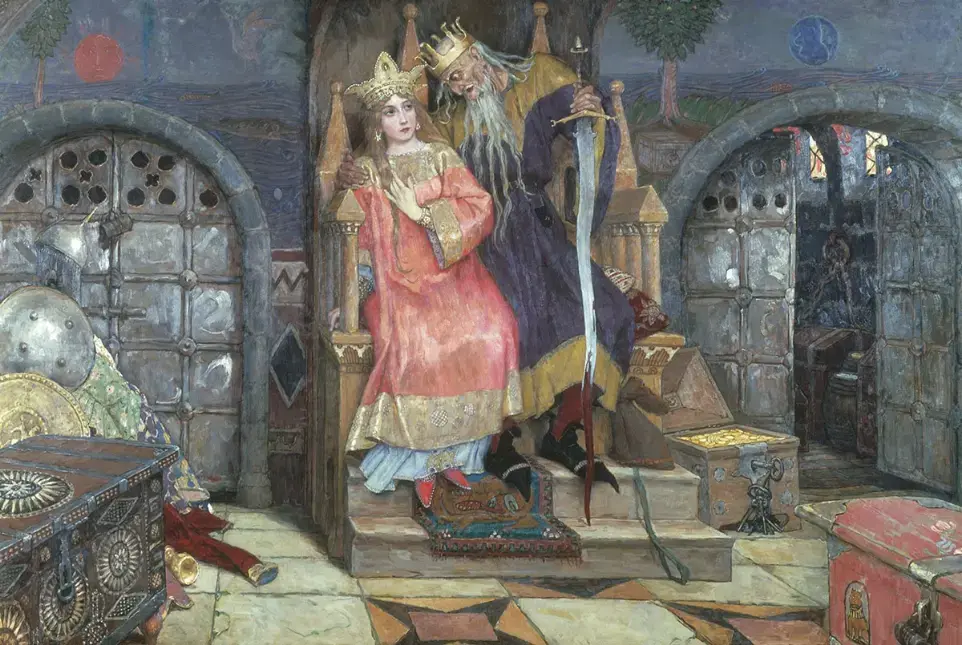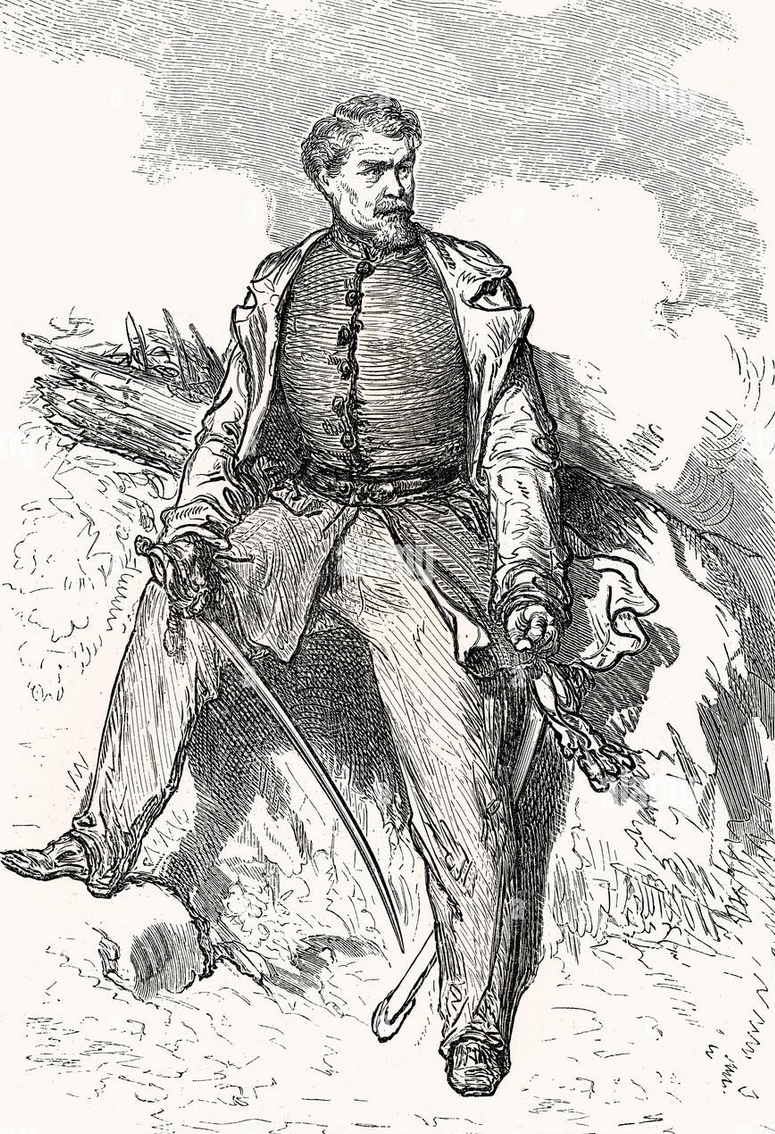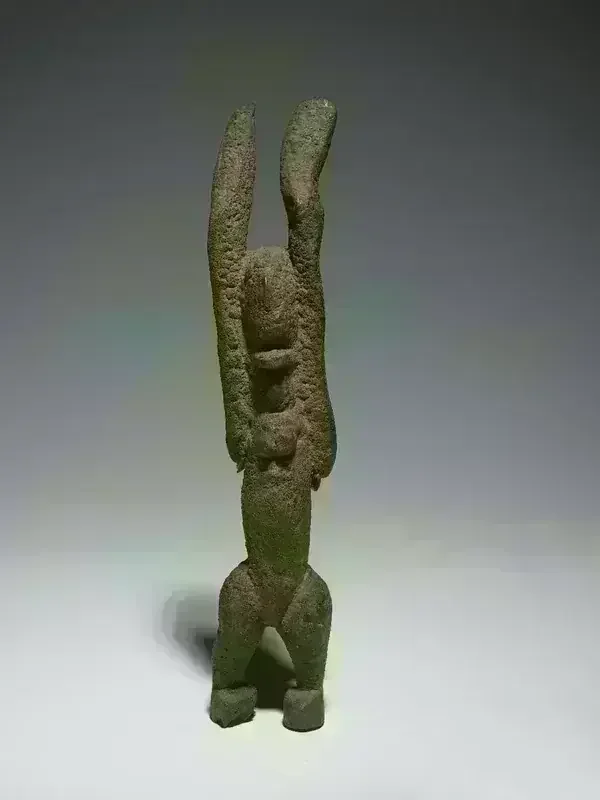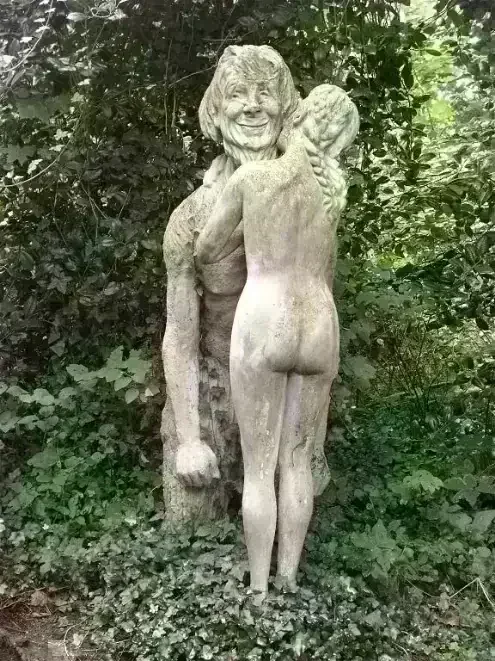Koshchei

Koschei the Deathless (Russian: Кощей Бессмертный) is one of the most iconic villains in Russian folklore, a powerful, skeletal sorcerer whose name has become synonymous with malevolence and dark magic. Known by various spellings including Koshchei and Kashchei, he frequently appears as the primary antagonist in numerous tales across Russian mythology. Koschei's most distinctive feature is his apparent immortality, achieved through an elaborate magical safeguard.
He preserves his essence of life—often referred to as "his death"—through an intricate nesting-doll arrangement of concealment. Typically, his death is hidden within a needle, which is enclosed in an egg, which is carried by a duck, which is inside a hare, which is locked in a chest, which is buried or chained on the distant, mythical island of Buyan. This complex protection scheme ensures that destroying Koschei requires solving multiple challenges rather than a simple confrontation.
In most tales, Koschei serves as the rival to the hero, often abducting or enchanting the hero's beloved. His character represents obstacles that must be overcome through cleverness and perseverance rather than brute force alone. Heroes typically succeed not through direct combat but by discovering and destroying the hidden source of Koschei's immortality.
The historical origins of this character remain debated among folklorists. Some scholars suggest a connection to the 12th-century Cuman-Kipchak leader Khan Konchak, who appears in "The Tale of Igor's Campaign." This theory proposes that over centuries, Slavic Christian writers may have transformed the non-Christian Cuman ruler into an increasingly sinister character, eventually developing into the supernatural villain known today. Beyond these basic elements, Koschei often appears as a wealthy, powerful figure who possesses vast treasures and magical abilities.
His kingdoms are frequently described as magnificent yet foreboding, filled with riches gathered over his impossibly long life. In some variations, he can transform himself, fly through the air, or cast powerful spells—abilities that make him a formidable opponent for even the most resourceful hero. Koschei's enduring presence in Russian folklore reflects fundamental themes about mortality, the corrupting nature of power, and the ultimate triumph of cleverness and virtue over seemingly invincible evil.
His character continues to influence modern fantasy literature, art, music, and film both within Russia and internationally.


